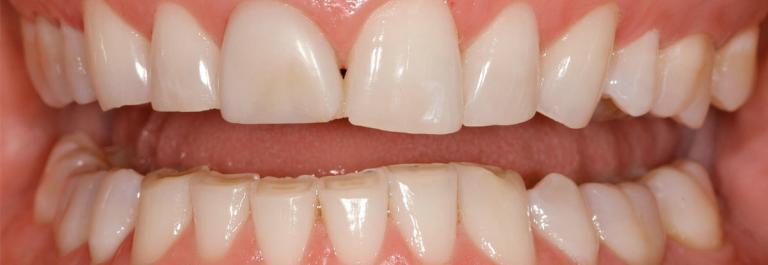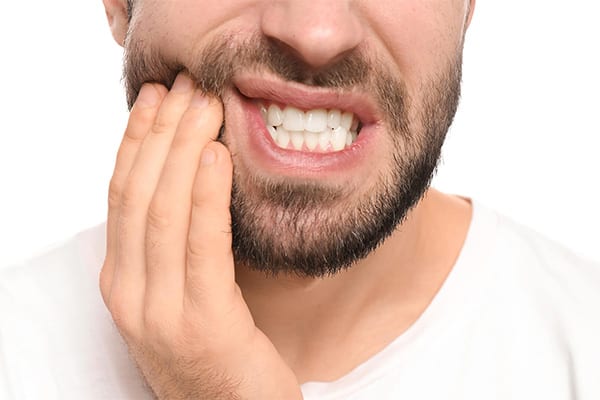We call bruxism an unconscious habit of clenching and/or grinding teeth, usually at night, but sometimes also during the day.
As a consequence, it can be a cause of a series of dental issues from dental wear to fractures, tooth thermo sensitivity, facial and nuchal muscle tension, headaches, inflammation and wear of the temporomandibular joint, chronic earaches and tinnitus.

The most frequent causes are emotional disorders that have its roots in STRESS, frustration or anxiety. What we deal with during the day, we process at night, thus trying to reduce stress and nerves. A restless and superficial sleep with many movements, dreams and a high muscular activity (in case of bruxism, the maxillary and temporal muscles) are the consequence. Caffeine or nicotine intake favours bruxism. The lack of teeth or maxillofacial malformations can increase discomfort, just as some medications can trigger this pathological mechanism.
There are a number of therapeutic tools to treat bruxism, its causes and consequences:
– Regular check-up and correction of maxillofacial and dental pathologies
– A dental guard as a tooth protector which reduces muscle tension showing effectiveness in a large percentage of patients. But 25% of patients even increase muscle activity with the splint. It is recommended to wear it discontinuously, e.g. 5 nights of use, 2 of rest.

– Short-term medication (pain relievers, anti-inflammatories, muscle relaxants, anxiolytics)
– Physiotherapy https://medicality.es/en/physiotherapy-in-valencia/
– Psychotherapy https://medicality.es/en/psychology-in-valencia/
– Relaxing techniques, meditation
– With biofeedback: the activity of the maxillary musculature is recorded through sensors, and in the event of an increase in the same, an impulse is emitted that causes relaxation of these muscles.
– In some cases, the neuromodulators can be injected into the maxillary muscles to soften its activity. https://medicality.es/en/aesthetic-medicine-in-valencia/






